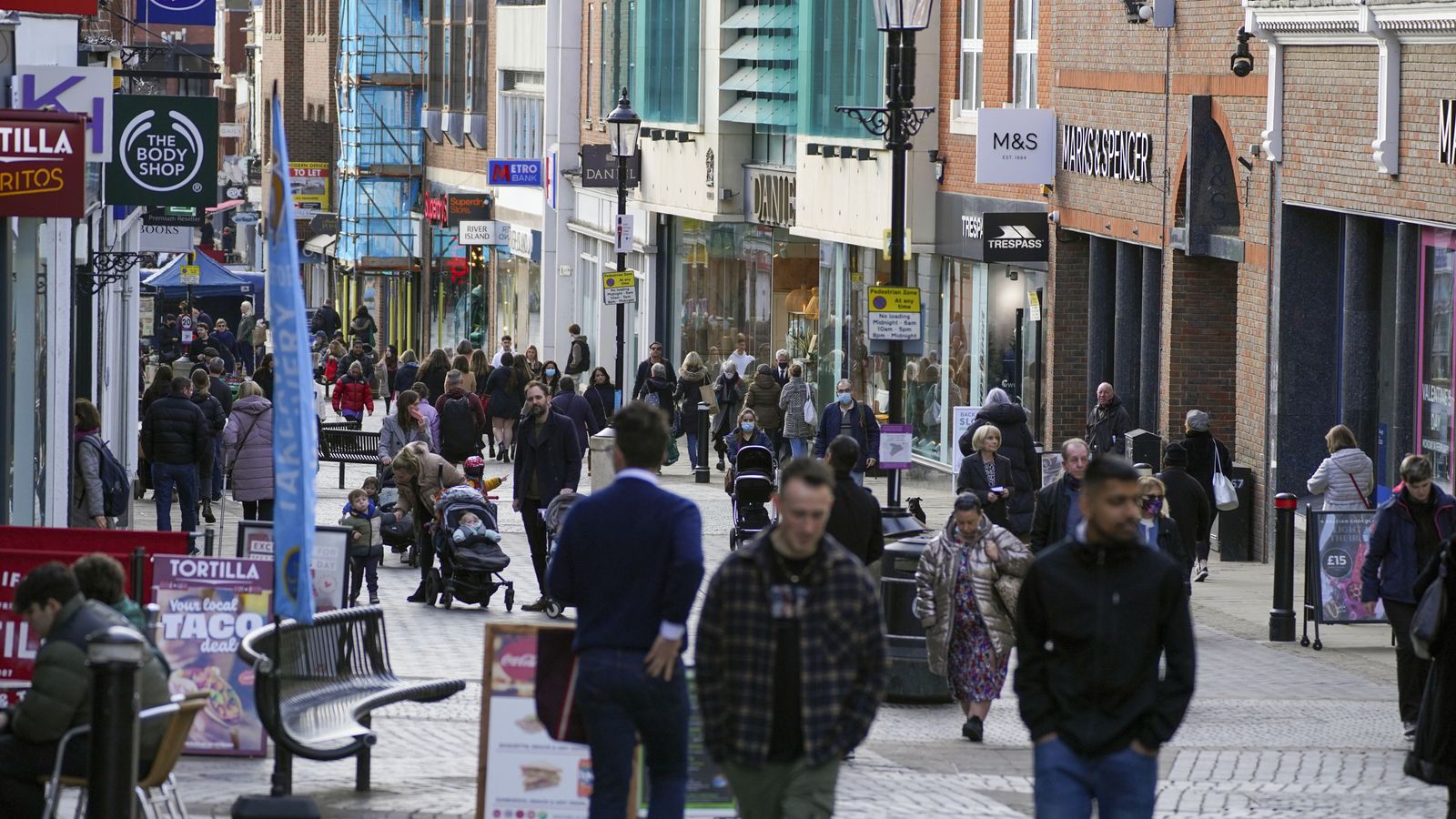Higher prices certain and job losses inevitable after budget, retail chiefs warn

Dozens of retail bosses have signed a letter to the chancellor warning of dire consequences for the economy and jobs if she pushes ahead with budget plans which, they say, will raise their costs by £7bn next year alone.
There were 79 signatories to the British Retail Consortium’s (BRC’s) response to Rachel Reeves’ first budget last month, a draft of which was seen by Sky News last week.
As farmers launch their own protest in London over inheritance tax measures, the retail lobby group’s letter to Number 11 Downing Street was just as scathing over the fiscal event’s perceived impact.
It warned that higher costs, from measures such as higher employer National Insurance contributions and National Living Wage increases next year, would be passed on to shoppers and hit employment and investment.
The letter, backed by the UK boss of the country’s largest retailer Tesco and counterparts including the chief executives of Sainsbury’s, Next and JD Sports, stated: “The sheer scale of new costs and the speed with which they occur create a cumulative burden that will make job losses inevitable, and higher prices a certainty.”
It added: “Retail is already one of the highest taxed business sectors, along with hospitality, paying 55% of profits in business taxes.
“Despite this, we are highly competitive, with margins of around 3-5%, ensuring great value for customers.
“For any retailer, large or small, it will not be possible to absorb such significant cost increases over such a short timescale.
“The effect will be to increase inflation, slow pay growth, cause shop closures, and reduce jobs, especially at the entry level. This will impact high streets and customers right across the country.
“We are already starting to take difficult decisions in our businesses and this will be true across the whole industry and our supply chain.”
The budget raised employers’ National Insurance contributions by 1.2 percentage points to 15% from April 2025, and also lowered the threshold for when firms start paying to £5,000 from £9,100 per year.
It also raised the minimum wage for most adults by 6.7% from April.
The BRC has previously pleaded for the total cost burden, which also includes business rates and a £2bn hit from a packaging levy, to be phased in and its chairman has said the measures fly in the face of the government’s “pro-business rhetoric” of the election campaign.
Official data covering the past few months has raised questions over whether the core message since July of a tough budget ahead has knocked confidence, hitting employment and economic growth in the process.
The government was yet to comment on the letter, which pleaded for an urgent meeting, but a spokesperson for prime minister Sir Keir Starmer has previously stated in response to BRC criticism that the budget “took tough choices but necessary choices to fix the foundations, to fix the fiscal blackhole that the government had inherited and to restore economic stability.”
Related
Llyods Recruiting Engineers In India After Slashing Jobs In UK
Lloyds Banking Group is planning to hire hundreds of engineers in India as the company plans to shift its employment opportunit
Major new funding for music acts that supercharged careers of…
£1.6m Music Export Growth Scheme to support 58 independent UK artists to tour the world Funding will boost UK’s creative industries – a key growth se
Well-loved restaurant chain to close 8 venues across UK as…
A BELOVED restaurant chain has announced it will close eight venues across the UK, scrapping 158 jobs in the process.Owners are pointing the finger at Labour's
US adds 151,000 jobs in February as unemployment rate ticks…
The latest figures published by the US Bureau of Labor Statistics today (7 March) came in below market expectations, with economists polled by












